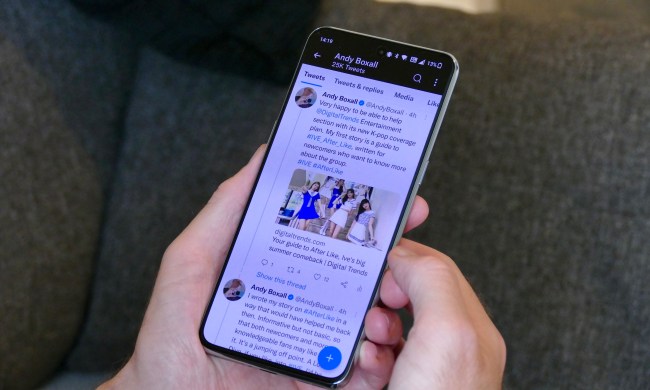X, formerly known as Twitter, has been mired in controversy almost since it came into being, but that seems to have reached new heights during the Elon Musk era. Regardless of where you stand on X’s current state, it’s clear that a large number of people are looking for a new home, and the fledgling social media site Bluesky has become one of the top contenders. Over 1 million U.S. users joined Bluesky in the week following the reelection of Donald Trump as president in November 2024, helping it cross the 15 million user threshold and climb to the top of the App Store chart. Signing up for the new social media platform used to be on an invite-only basis, but the elimination of invites helped make the move from X to Bluesky a lot easier for everybody.
But what exactly is Bluesky and how can you sign up for it? Here’s an explainer of exactly what you can expect from the new Twitter clone, Bluesky.
What is Bluesky?

Unless you’re really plugged into tech news, you may not have heard the name “Bluesky” until last year. Created from parts of X in 2019, it didn’t hire its first employees or become an independent company until 2021. It finally began garnering public attention when it released an iOS app in February 2023. Since then, it’s slowly been picking up traction as a potential X alternative, and with the release of an Android app in April 2023, it’s started getting some real recognition.
But what actually is Bluesky? In short, it’s a new social media network that bears a striking resemblance to X. Follow people, like their posts, and make replies — it’s all very X, all the way down to the app interface. You even send “skeets” instead of tweets — a term that has caught on, despite CEO Jay Gruber’s pleas to the contrary. But look a little deeper, and more differences can be found.
One of the main differences is how Bluesky is structured. Rather than having a central server where all posts are collated, Bluesky works a little more like another X alternative, Mastodon. Like Mastodon, Bluesky is decentralized — meaning there isn’t a single central server under the control of Bluesky. Instead, there are many separate servers, each with its own moderation principles and curation. While there’s still an official Bluesky Social server that anyone can join, there’s an expectation that users will branch off into their own networks, which Bluesky calls “applications”.
Sound confusing? It isn’t too complex, though a lot can be said for Bluesky keeping this particular element quiet for the moment, as confusion over the server system can be a significant barrier to entry for many Mastodon newbies.
Thankfully, Bluesky makes it easy. If the idea of separate applications and decentralized networks makes your head swim — and you wouldn’t be alone there — then just sign up for Bluesky Social network.
Is Bluesky legit?

Bluesky was co-founded by Twitter founder Jack Dorsey, so it’s about as legitimate as you can get. Interestingly, Bluesky seems to be Dorsey’s second stab at getting the Twitter/X formula right. Dorsey has spoken about his regrets over Twitter (now X), and those regrets center largely around the centralized nature of the platform, and the fact that it eventually ended up as a company at all.
Dorsey sees social media at its most pure with Bluesky. Rather than being run as a company with moderation principles, he wants to put power back into the hands of the people. While Bluesky operates its own server, there’s an emphasis on user-run servers, taking power away from Bluesky as a company and placing it into the hands of separate moderation teams. Considering X’s troubles over the years with content moderation, this could be a smart move from Dorsey — though there’s been some historical pushback on that theory.
The bottom line is yes, Bluesky is a legitimate social network. However, that only means you should treat it with as much trust as you would normally treat social networks — and that’s a personal decision that’s going to be different for everyone.
Is Bluesky owned by X?

The short answer is “no,” but there’s more to this story than just that. Initially, Bluesky was “spun out” from X in 2019. In business terms, a “spinout” is when a company moves parts of its assets into a new one before it’s launched and runs as a new company in its own right. So while Bluesky may have begun life as part of X, it has since been fully separated from its parent company.
Bluesky shares a lot of other similarities with X. As mentioned, X founder Dorsey is involved in the company, as was previous X CEO Parag Agrawal. But even with those strong links, Bluesky is fully separate from Musk’s X and certainly isn’t owned by X.
Is Bluesky available for Android and iPhone?

Yes, the Bluesky app is available right now on both Android and iPhone. You can find Bluesky on the Google Play Store and Bluesky Social on the Apple App Store.
When Bluesky was coming up as a contender to replace X alongside Threads, Mastodon and Hive last year, you needed an invite code to get in. If you didn’t get an invite code, you would have to ask your friends, who would carry three invite codes at a time — and you would be lucky to get one of them. Today, invite codes are no longer required to create a Bluesky account since it’s out of the beta phase. Just create an account and you’re all set.
What makes Bluesky special?

For starters, Bluesky allows users to create starter packs and mass block lists. They’ve been helpful for people migrating from X to see directories of accounts to follow and block in order to better customize their feed. For example, journalists may see starter pack lists featuring their peers and editors (like this one) and click “Follow all” to save time on following each user individually. Then there are block lists filled with unsafe users that, when you click “Subscribe,” give you the option to block everyone on that list automatically. Given recent events, you might have seen what block lists were created.
Then there’s the fact that Bluesky is free of pesky ads, which irritated many people on X. Ever since Musk bought X, the site’s algorithm changed to make it so that ads from the most random accounts and companies would pop up in the comments section, after seeing a video on your phone, and on your feed. We don’t know how long Bluesky will be ad-free for, but it’s nice not to see ads clutter the home feed for once.
In short, Bluesky places control of news feeds in the hands of users, not in the hands of the company. Allowing users to curate feeds to see content they love from people they follow while blocking the people they don’t follow for their own safety — all while not siloing everyone into separate servers like Mastodon — is showing to be a net positive for everyone.


